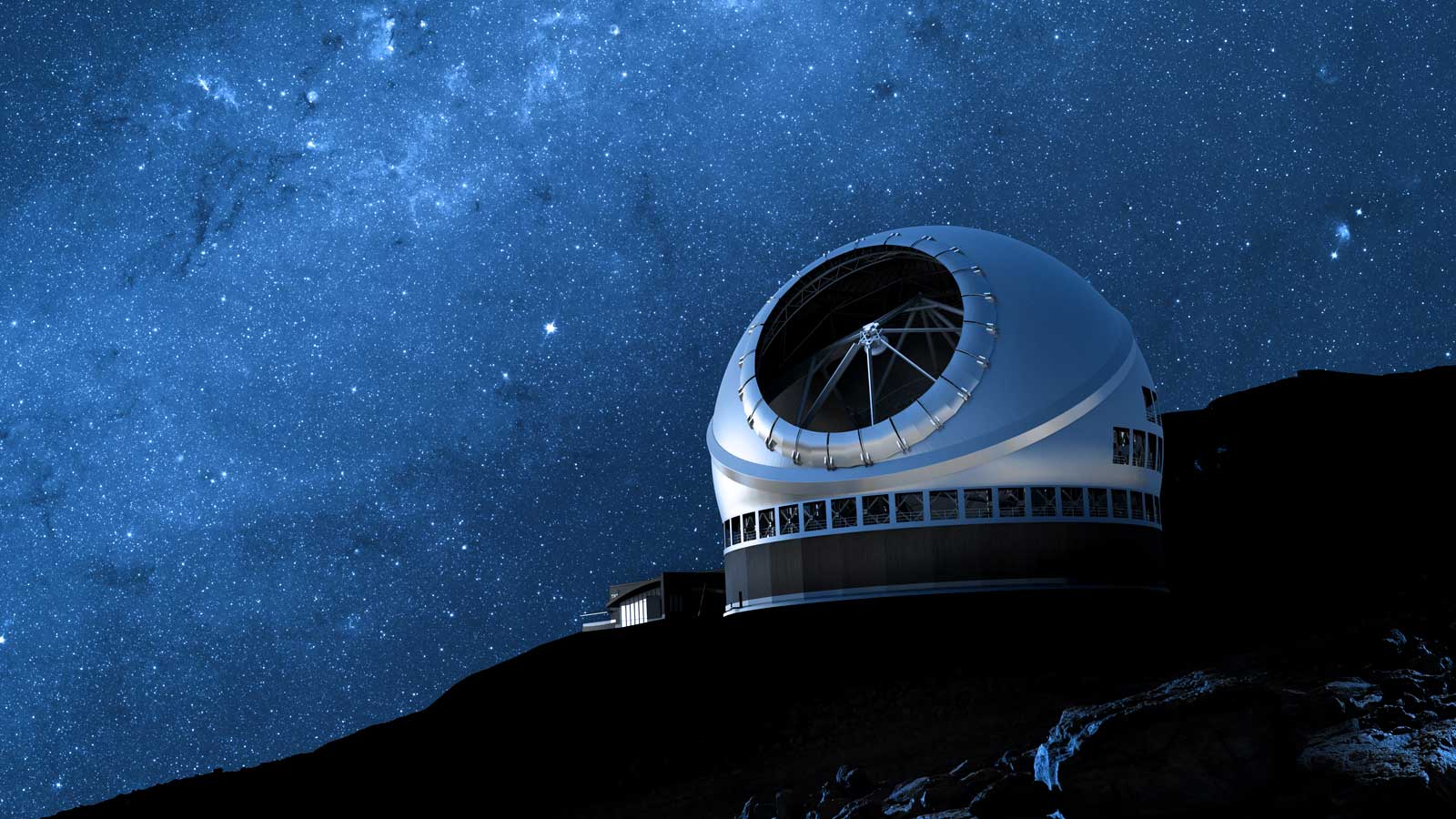TMT Project Scientist Jerry Nelson Wins Kavli Prize in Astrophysics
June 6th, 2010
Jerry Nelson, project scientist for the Thirty Meter Telescope (TMT) and professor of astronomy and astrophysics at the University of California, Santa Cruz, will share the $1 million Kavli Prize in Astrophysics with two other researchers for their innovations in the field of telescope design. Nelson’s engineering and scientific innovations enabled the building of a new class of large telescopes that revolutionized the science of astronomy.
Nelson shares the prize with Roger Angel of the University of Arizona, Tucson, and Ray Wilson, formerly of Imperial College London and the European Southern Observatory. They are among eight scientists whose discoveries in the fields of astrophysics, nanoscience, and neuroscience have been recognized with the award of the 2010 Kavli Prizes, announced June 3 by the Norwegian Academy of Science and Letters. The laureates will each receive a scroll, a gold medal, and a share of the $1 million prize for each of the three fields.
Nelson earned a bachelor’s of science degree in physics from the California Institute of Technology and a Ph.D. in physics from the University of California at Berkeley. He is internationally renowned for his central role in the design of the twin Keck Telescopes at the W. M. Keck Observatory in Hawaii, conceiving the revolutionary segmented design of the Kecks' 10-meter primary mirrors. Nelson also helped pioneer the use of adaptive optics for astronomy. Adaptive optics systems sense atmospheric turbulence in real-time. They then adjust the optics of the telescope many hundreds-of-times each second to erase the distortion caused by light passing through Earth’s atmosphere
As project scientist for the TMT, Nelson is helping to lead the development and polishing of the telescope’s 492 mirror segments and the design on the telescope’s innovative adaptive optics system.
The TMT plans to begin on-site construction on Mauna Kea, Hawaii, in 2011.
The TMT project has completed its $77 million design development phase with primary financial support of $50 million from the Gordon and Betty Moore Foundation and $22 million from Canada. The project has now entered the early construction phase thanks to an additional $200 million pledge from the Gordon and Betty Moore Foundation. Caltech and the University of California have agreed to raise matching funds of $50 million to bring the construction total to $300 million, and the Canadian partners propose to supply the enclosure, the telescope structure, and the first light adaptive optics.
The TMT project is an international partnership among the California Institute of Technology, the University of California, and the Association of Canadian Universities for Research in Astronomy. The National Astronomical Observatory of Japan (NAOJ) joined TMT as a Collaborating Institution in 2008. The National Astronomical Observatories of the Chinese Academy of Sciences joined TMT as an Observer in 2009.
The biennial Kavli Prizes were first awarded in 2008. They were set up to recognize outstanding scientific research, honor highly creative scientists, promote public understanding of scientists and their work, and encourage international scientific cooperation. The prizes are a partnership of the Norwegian Academy of Science and Letters, the Kavli Foundation, and the Norwegian Ministry of Education and Research. More information is available online at www.kavliprize.no.
